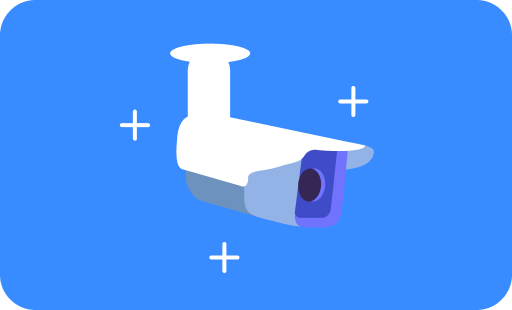It's time for utilities businesses to embrace the cloud, not fear it
- Security for businesses
- FILTER_Security for businesses

More and more utility companies are seeing the value of their data and they’re starting to use the cloud to store and protect their information. A lot of technology firms used to rely solely on on-premise data storage, but now that’s no longer the case. This article answers the most-asked questions about cloud security for the utility industry. We’ll explain why it’s safe for critical infrastructure and how it can improve security and operations.
What are the biggest threats to critical infrastructure companies?
Hackers, terrorists threats or attacks, and malware attacks are the major threats to infrastructure companies. While utilities and energy firms focus on the physical security threats, there are also cyber threats to consider - especially now that equipment such as grids and smart meters are recording and transmitting data. If one’s data is stored on premise, the likelihood of it being stolen is much greater; this could result in a facility being attacked and the information being lost. One way to protect your firm’s information from these threats by investing in the cloud, which has the added benefit of saving your firm time and money; below, we'll explain how.
Want even more resources about utilities security? Check out our dedicated hub:
How safe is the cloud?
When information is stored on the cloud it is first encrypted to protect a company's data. Encryption is the process of original data being formatted into data that is unreadable and then moved to the cloud. According to the North American Electric Reliability Corporation (NERC), data that travels across the public internet must be encrypted in transit to ensure it is not usable by unauthorised individuals. A quick tip to know if your data is encrypted is to look for “https://” in front of the web address, also known as Transport Layer Security. Almost all data is encrypted in a number of different ways by Cloud Service Providers (CSPs).
With that being said, how difficult would it be for a hacker to steal your information? To put it plainly, it would be extremely difficult according to NERC. Even if a hacker is able to obtain data from the cloud, they would then have to decrypt the data to its original state, a readable format, which would still be extremely difficult.
Another precaution CSPs take to protect data is to store it on servers in multiple geographical locations, which protects it even more by making it harder for hackers to access your entire database. For instance, Calipsa uses AWS servers located in Ireland and will soon be expanding to add a North American server this year. Not only does this cater to our US client base, it simultaneously increases the security of our data. This will also reduce the risk of Calipsa’s data coming under threat from physical attackers.
Why use cloud surveillance technology?
There’s a lot of talk about not using the cloud for data security reasons, but what happens when you actually use the cloud to protect your data? For utility and energy companies, using the cloud reduce the risk of cyber attacks, with other security and operational benefits.
For example, a power line company could sustain a malware attack on an on-premise server; they face losing their information while also damaging the trust of their customers and potential clients. Long-term, the company might suffer a tarnished reputation as a result of this data breach. In this instance, a CSP's data storage service could provide a company with better encryption and better anti-malware. What's more, a remote server (or multiple remote servers) makes a targeted attack much more difficult. If an attacker were to physically damage an on-premise server, it is highly likely that a vast amount of important data would be lost. Storing this data remotely - even just a backup copy - immediately reduces that risk.
Cloud services have many other benefits besides data security. For utilities sites in remote areas, staffing can be an issue. However, the cloud's scale and flexibility enables companies to hire more staff regardless of location - meaning that you could hire a remote team of security staff to monitor security cameras on a facility where hiring security guards would be too logistically tricky and expensive. Cloud computing allows for real-time updates and reporting too, giving you instant visibility into threat activity.
In terms of daily operations, backing up your data in the cloud gives more of your workforce much better access, enabling better analysis and business insights. It also means that teams based in multiple locations can collaborate with greater ease, connecting your business in ways that weren't possible before cloud computing.
Find out more about how the cloud could work for your critical infrastructure business by visiting our Utilities Resource Hub:








No comments